"I was pretty much resigned to the idea of never having kids. Being gay is an automatic no." -- Stephen Deal
Stephen Deal is dad to a 17-year-old girl and a 16-year-old boy who he adopted. But unlike most teens in their Southern California community, Marella and Raul have not one doting dad but two: Deal and his husband, Dan Calma, who tells The Advocate, "Most of our friends are dual income, no kids. We went from being part of that community to all of a sudden having kids."
Deal and Calma formed just one of thousands of families headed by same-sex parents across the United States, part of a growing trend that predates the Supreme Court ruling on marriage equality five months ago and has gained significant steam since.
Last week, in celebration of National Adoption Month, Calma and Deal and two other couples -- Sara Neel and Sherri Paxton, and Kergan Edwards-Stout and Russ Noe -- shared with The Advocate the lessons they've learned as LGBT parents who adopted.
"I was very nervous when I went to my very first foster adopt parenting class," says Edwards-Stout. "I walked in and half the couples there were gay or lesbian. So there was no reason to be fearful, but you never know what to expect."
And it's worth noting these couples don't distinguish themselves from the neighbors or other families as different, whether because they're same-sex couples or because the kids are adopted. And they say neither do their kids or, to their knowledge, their friends and neighbors.
"We both have done activities at school," Neel says of their oldest son, Michael, from their home in California's High Desert area, near Los Angeles. "He's brought friends over and they [simply] see there's two moms."
Or two dads, at Edwards-Stout and Noe's home in Evergreen, Colo., and Calma and Deal's home in Orange County, Calif. These couples all sought to help their children psychologically as well as physically, something Calma learned does set them apart:
"The one thing that makes us different from my colleagues' families is we actually have our kids in therapy. And we talk about how frustrating it can be raising teenagers and how great it is to have that outlet. One of my fellow teachers said, 'It's nice that you have that because my family would never have that resource. I had taken it for granted.'"
Not one of them set out to be activists or trailblazers. But, Calma tells The Advocate, they have to be:
"One of the ways we are advocates for our kids is in education. In our schools there haven't been a lot of children who've gone through this adoption process. So we've had to educate the staff -- for example when Mother's Day comes around, you may see certain kids act a little weird. It's probably because they're internalizing 'I don't have a mother' or 'My mother is not a part of my life.' We are informing and educating in a kind and careful way. Not that we want to make adoption an excuse, but we want to give their teachers a reason for why they might be acting or responding as they are."
Each couple offered different perspectives on the experience of choosing to become foster parents. They bravely shared what they had to do to achieve their dream and how they manage their family dynamic given the factors of sexuality, gender, interests, politics, and teenage hormones. They are each raising their children to be strong, self-sufficient, and upstanding young men and women, and with one possible exception, their children show no indication of being LGBT themselves. But their parents say they do understand, perhaps better than most, that it's love that makes a family, and that they are indeed loved.
Kergan Edwards-Stout and Russ Noe
Edwards-Stout (above, second from left), an author, is "Daddy," and Noe (above, third from left) is "Pappy" to 15-year-old Mason (above, left) and 13-year-old Marcus (above, right). Noe is a brand strategist in marketing. They're both Caucasian and 50+ native Californians who moved this past summer to Evergreen, Colo., just 30 minutes outside Denver. Edwards-Stout met his husband on Match.com shortly after a divorce, and they have been together 15 years.
Mason and Marcus are African-American, and how they each came to be adopted by Edwards-Stout is a lesson unto itself. Edwards-Stout and his ex-husband privately adopted Mason from his birth mother in 2000, as an infant. His other dad ("Papa") has visitation rights, but Edwards-Stout has the primary custodial relationship. Edwards-Stout describes Mason as an "amazing athlete" who plays football for his high school team.
Marcus, on the other hand, was adopted through foster care by Edwards-Stout and his current husband when he was 2, and the process revealed what Edwards-Stout says are "two very different experiences:"
"Because Mason was adopted privately, it was a very expensive process. roughly $30,000, but it was relatively smooth. Adopting through foster-adopt was incredibly inexpensive. In fact, I think my out-of-pocket expense was $500. Marcus gets a stipend from the state until he's 18. Those things can help offset any expenses of raising a child. Other people who get kids from foster care deal with a lot of red tape, ineffective social workers; [but ours] really helped us get the lay of the land and walked us through the process from beginning to end."
Marcus's daddy describes him as "our entertainer, singer, dancer, actor, comedian." Edwards-Stout tells The Advocate, Marcus's early days were especially challenging:
"He came out of the foster care system with additional issues, like ADHD, exposure to drugs, which gave him a more challenging start in life. He was born with club feet [and] his birth mother never found time to correct it. After he was taken away it was surgically corrected, and now he's a dancer; he runs. He came to us in a fragile state and is just flourishing. They're both doing very, very well."
Edwards-Stout says he fulfills "the more maternal role in terms of taking care of their needs, taking them to school, doctor's appointments, and that kind of thing. Taking care of the house. So there is a difference in how they relate to my partner and I. We play different roles n the family unit."
His advice for prospective parents is to true to who you are: "It's important that any LGBT person that is considering parenthood should be fully authentic with the people they are interacting with, in terms of being out and proud. Because anyone who is going to be parenting a child, people are going to ask questions about their child and the relationship. So if someone is in the closet in the beginning, it doesn't set the situation up for success."
Despite being the new kids in town, their daddy says Marcus and Mason are popular. "We're assuming they're both heterosexual, they're both interested in women, but until they get a little older it's really too soon to tell." Edwards-Stout says he and his husband don't worry about the boys' sexual orientation. "I want them to be happy in life, in both their career and their personal pursuits. However they go looking for that is fine with us."
Edwards-Stout says he and Noe respect the fact their boys are black, and together their sons made it very clear: "'We don't want any whites cutting our hair.' So I drive them to Denver to an African-American barbershop. Edwards-Stout describes Evergreen as a "very white community, not a lot of diversity, even for LGBT people."
"From the time we knew Mason would be born, once we knew we were going to be adopting him, I did everything I could to try to bring a multicultural diversity to our world, everything from kids' picture books that had African-American people, making sure the Christmas tree had more than just ornaments with white Santas and white angels," Edwards-Stout says. "So we really have tried to expose them to a wide range of things, because we know we can't replicate the experience of being African-American, but we can show them how diverse the world is, and let them learn there are all kinds of people and they all should be celebrated."
Another big difference these dads and their sons celebrate, in addition to sexuality and skin color, is their diverse interests:
"Neither Russ nor I are stereotypical masculine men who are football watchers and know how to fix things. We are both artistic and creative people and we're raising two kids who are interested in athletics. So what's incredible is that we are all able to educate each other. Our kids tell us at the dinner table about NFL teams and who the players are, and we give them a very different perspective. So we're all learning from each other all the time."
Would they do it again? Edwards-Stout tells The Advocate, "I just wish I had the emotional resources and financial resources to do it again. I would do it again in a minute. I really do love the experience of raising kids."
According to a report on LGBT parenting by the Williams Institute in February 2013, same-sex couples raising children were found to be four times more likely than their opposite-sex counterparts to be raising an adopted child. An estimated 16,000 same-sex couples were raising more than 22,000 adopted children in the U.S. The researchers concluded that same-sex couples were six times more likely than their different-sex counterparts to be raising foster children.
And as the Human Rights Campaign has noted, many older children are waiting to be adopted, and they often have a long wait. The Administration for Children and Families reported last year that more than 22,000 of the 107,918 youth waiting to be adopted were emancipated from foster care. That means nearly one out of every four young people awaiting adoption were sent out into the world on their own, having lost access to education and financial support systems because they reached a certain age, usually 18 to 21.
A handful of states still throw up barriers to same-sex couples looking to adopt, including Utah, where same-sex couples were unable to legally adopt until October 2014, and still it took until July of this year for a federal judge to force the state to follow the law. To this day there are still judges who deny couples their rights -- until they get caught and the media shines its spotlight on them.
Back in 2010, it was a problem that Sara Neel and Sherri Paxton decided to avoid -- by moving.
"By the time we got around to talking about adopting we realized we were in a state that wouldn't let us adopt. So we made the decision we would move back to California."
Sara Neel and Sherri Paxton
Sara Neel (above, left) is a stay-at-home mom who was intent on having a child, but for medical reasons turned to adoption as her best hope of starting a family with her partner, Sherri Paxton (above, right). The marketing director and graphic artist met Neel in 1998 through mutual friends at an AIDS benefit dance-a-thon in Los Angeles. They live with their five adopted children in Southern California.
"It's a big commitment," Paxton tells The Advocate, "and [Neel] got me on board. We started taking classes. We took a lot of classes! We had to do background checks all the way up to the Department of Justice. Fingerprinting. CPR classes. First aid classes. Home study. Parenting classes. We had to move because our house was too small. We had a two-bedroom and moved into a four-bedroom. So when you talk about commitment, there were a lot of things we had to do to be ready to have kids move into our home."
The hoops they had to jump through are the same for heterosexual adoptive parents, but not for straight couples starting a family through childbirth. "They don't have to do 40 hours of parenting classes. Or is it 80? And we took specialty classes for dealing with children who suffer from abuse and neglect and have a lot of behavioral issues, the kind of thing you kinda wish heterosexual couples did have to take."
Neel wasn't planning on starting the way they did. She wanted a baby to care for and nurture.
"There's a form where you put down what you're looking for and I put down 0 to 6 months. We were looking for a pair of siblings 0 to 6, and instead we got a 12-year-old boy!"
"Michael was a different situation," adds Paxton. "I think it was the most unique situation ever." His foster mother, on the Saturday before Mother's Day, two days before the adoption was to become final, decided she no longer wanted both him and his sister, and called for the foster care agency to come pick him up. They in turn called Neel and Paxton, who agreed to take him in on short notice until another foster family became available.
"It was heartbreaking as he said goodbye to his sister," says Paxton. "'We had a good run,' he told her."
Paxton says she told Neel that weekend she had formed a bond with Michael and would not let him go. The caseworkers told them it was out of their hands, and that because of jurisdictions their emergency placement could not be made permanent. Paxton was defiant. "If it's because we live in Riverside County instead of Los Angeles County, then I will move next week."
And so they did. The courts, the caseworkers, and the women made it happen: They were a family.
But it wasn't long before Michael approached Neel and Paxton with a request.
"He came to us one day and said, 'Nothin' against you ladies, but it's kinda lonely here. Can we get some more kids?' I said yeah. 'Well, good, then,' he said. 'I want a 10-year-old boy who plays Xbox and basketball.' We told him, 'This is not Burger King, you can't have it your way!'
Neel was on board. "I still wanted a baby!"
The agency struck gold: it found a suitable baby ... and three older siblings. Overnight, Paxton says, they were turning their trio into a septet:
"It was three years ago, August 2012. We posted on Facebook that we were getting all these kids. And it was the most amazing thing ever: I had people driving all the way to Riverside from L.A. People brought us dressers, clothes, cribs. People we didn't know, friends I hadn't seen since high school, were buying us car seats, because we had to have four car seats. We didn't even have a car to fit everyone: We had a small SUV and a small commuter car. We now had a family of seven!"
"Then Sara got a list of birthdates. She looks at it and says, 'I don't know if my math is wrong, but this baby is almost 2 years old! Turns out she was 27 months; instead of an infant we had a toddler.
"There goes the crib into the garage, there go the infant diapers. But we got all four kids, ages 2, 4, 5, and 6. They had been split up and were reunited together in our home."
"Michael was disappointed because he didn't get the brother he wanted," says Neel, "but he got Daniel, who was 4, so that made him happy."
Michael is about to turn 17; his adopted sister, Catherine, is 9 1/2; her sister Makenna is 8, Daniel is now 7, and "the baby," Gracelyn, is 5.
They call the women "Mom" and "other Mom"; "Mom with the glasses," "Mom with the boy haircut" -- that's Paxton.
The lesson Paxton wants to impart to prospective LGBT adoptive parents: "It's hard."
"It's really hard!" agreed Neel.
"It's definitely worth it," Paxton says, "and we would do it all over again. You're never going to take enough classes, you're never gonna read enough books."
"They come with a lot of past trauma and things that they're working through," added Neel. "You have to be super strong, extremely strong to deal with all the stuff that they're dealing with."
"There's a lot of healing that needs to go on," suggests Paxton.
Two challenges with which they're dealing: Michael is about to take his driving test. and Daniel, who wants to get his ears pierced, enjoys dressing up and getting his nails painted." Paxton and Michael aren't on board.
"I'm sorry, it's not fair," Paxton says she told Daniel, "but there are differences between boys and girls."
"I feel completely the opposite," says Neel, "and I let him do what he wants to do. Dress up, wear heels, I'll paint his nails for him."
Aghast at this, Michael warned Neel, "You're going to make him gay."
"No, you can't make someone gay," Neel says she told Michael, "especially not by painting their nails!"
At school, however, Neel says some of Daniel's classmates gave him a hard time about his nails. Neel was ready with the perfect response:
"I told him, if you feel good, that's all that matters. And I'm fine with it.' And he says, 'Yep, that's how I feel too.'"
Dan Calma and Stephen Deal
Calma (above left), known as "Papa" and Deal (above, right), or "Daddy," live in Orange County, Calif., where Calma is a teacher. Deal, Caucasian and a native Californian, is a program manager in IT. Calma is Filipino-Japanese and grew up in Hawaii. He boasts, "We met over the Internet almost 25 years ago, 1991. Next year will be our 25th anniversary of when we met."
They are dads to Marella, 17, and Raul, 16, biological brother and sister from a family of seven kids who were scattered in foster care. They are Latino. Calma and Deal were Marella and Raul's foster parents beginning in September 2007. Despite some early visits from their birth mother and court proceedings to arrange for continuing contact, neither she nor their birth father chose to reach out to them since their adoption was finalized in August 2008.
It's been an adjustment on both sides, says Deal. "Their first Christmas with us we asked them to fill out a Christmas list, and all we could get out of them was one little thing that they would want. That's it, something very, very small. Now, of course, they want everything!" "A horse!" Calma chimes in.
Deal tells The Advocate he is grateful for a continuing education program offered by their foster care organization. "The classes help us differentiate from typical teenage problems versus problems related to their past. They are typical teenagers, and it can be very frustrating!"
Among the lessons they've learned is the level of investment parenting requires, says Calma:
"Adoption is such a huge commitment, even more than being married. You know that in marriage there's also divorce, you can always get out. But when you are talking about a child, that should be something that should never ever be an option. So before you do it make sure you understand that it's something you do forever.
"I think I read somewhere someone said, 'Think of it as a tattoo on your face.' Once you adopt a child, it's not like it's something that you can remove. It's just like putting a tattoo on your face; can you live with that? Be sure you can live with that."
Calma was also concerned that where they lived might pose a problem. "We weren't sure living in Orange County, which can be very conservative, how they would be received, both because they have us as dads and as being adopted. There haven't been any issues like that."
Deal and Calma strongly recommend reaching out to other adoptive parents. "We have friends and families who have children, certainly," says Calma. "But having other parents who have been through the foster care system and have adopted, even with all the emotions and feelings that they might have, I think we were very lucky that we had that support system in addition to our family and friends."
"The first thing couples will think after they've adopted is, What in the world have I gotten myself into?" says Deal. "The solution is, persevere through, and there are a lot of good things that come out of it, through all the frustrations. A lot of love, and happiness can help you get through."
And a lot of laughs. Deal says their daughter has a keen eye for spotting a good-looking man. "She's always telling me, to the point of embarrassment, 'That guy is hot!'"
"We've had quite a few surprises raising a girl," recalls Calma. "I remember one day in particular, July 7, I will never forget: My daughter came to me and said, 'Papa, I'm bleeding.' And I said, 'Where?' Typical, stupid male mentality.
"And she said, 'In my private area.'
"And I'm like, 'Oh, my God!'"
Calma admits that despite having conversations about menstruation, these two gay men were totally unprepared for the arrival of their daughter's first period. "That was the big day. I called Stephen at work and I said, 'Get home! I'm headed to the store, but you get home. We're doing this together!' So I went running to the grocery store at 6 o'clock in the morning, looking at a slew of possibilities: wings, no wings, light, heavy, maxi, mini -- it was the Baskin-Robbins of feminine hygiene!
"But we made it through, no battle wounds."
If you would like more information about adoption for LGBT people, there are a variety of resources online: HRC has an online guide here, and go here for the Pew Charitable Trusts's comprehensive report on the evolution of adoption rights by state since the June 26 Supreme Court marriage equality ruling. You can also reach out to the Kinship Center, a member of the Seneca family of foster care agencies, which helped the couples in our report find their children, by clicking here.

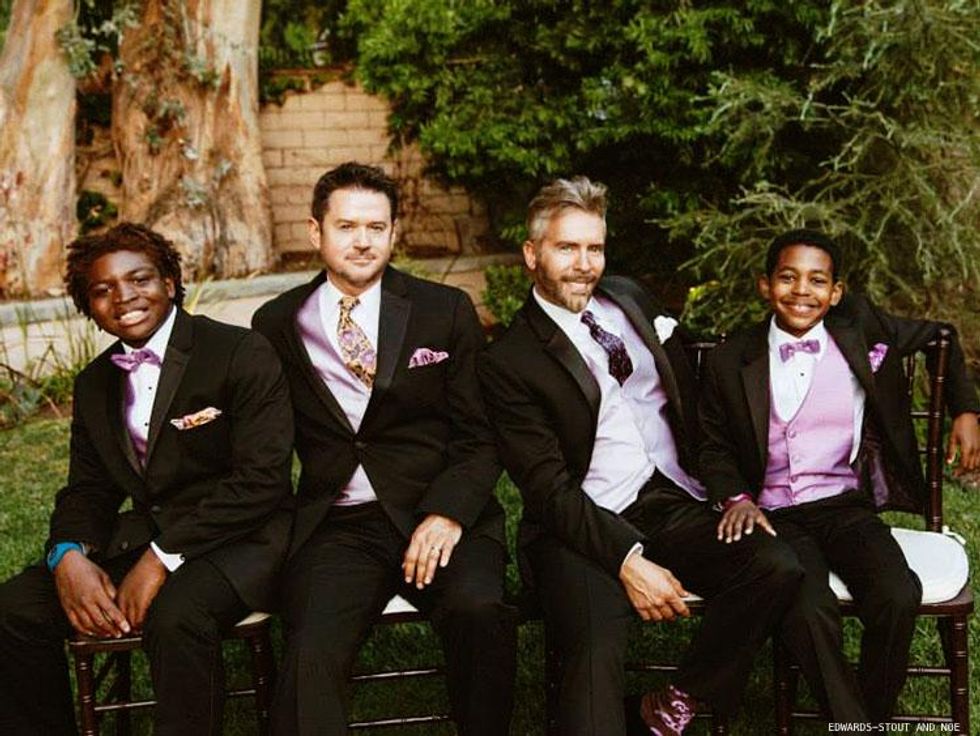
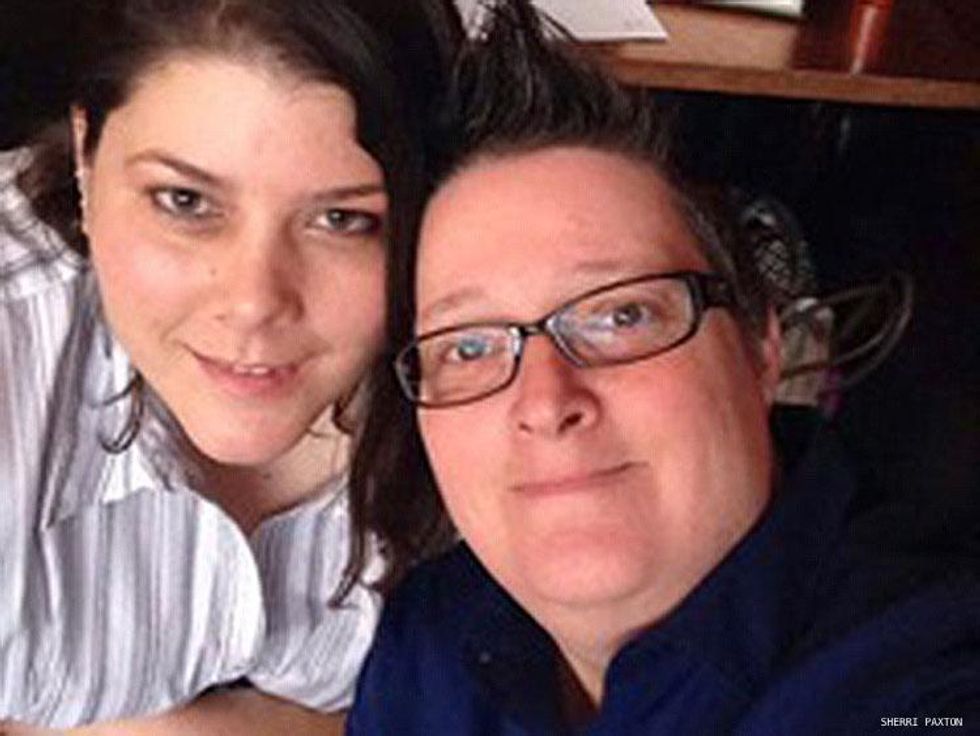
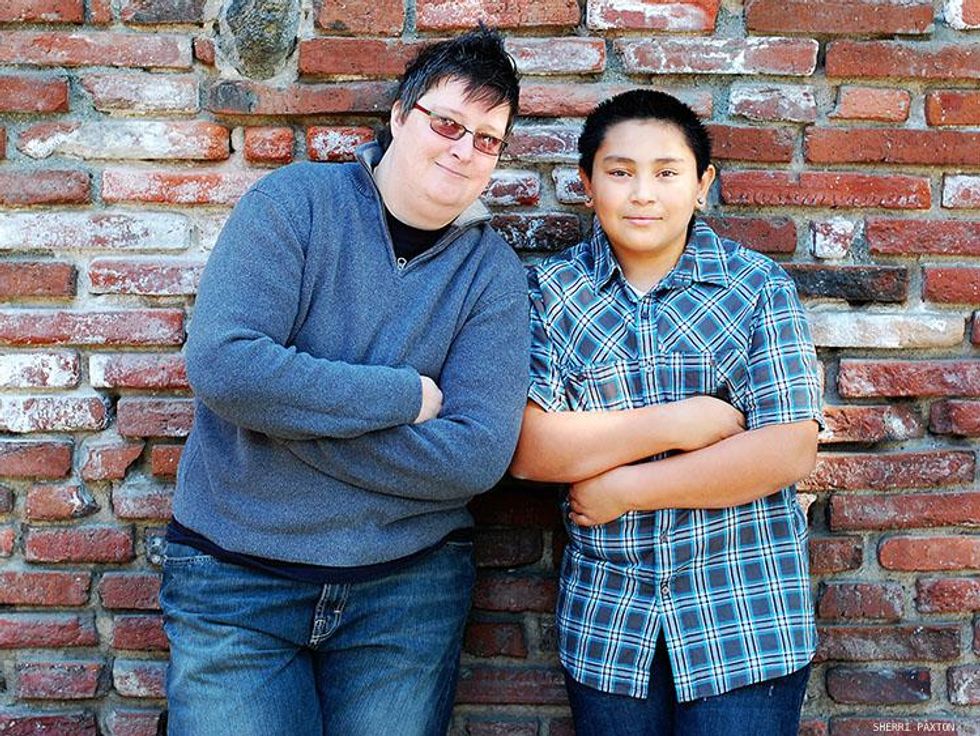
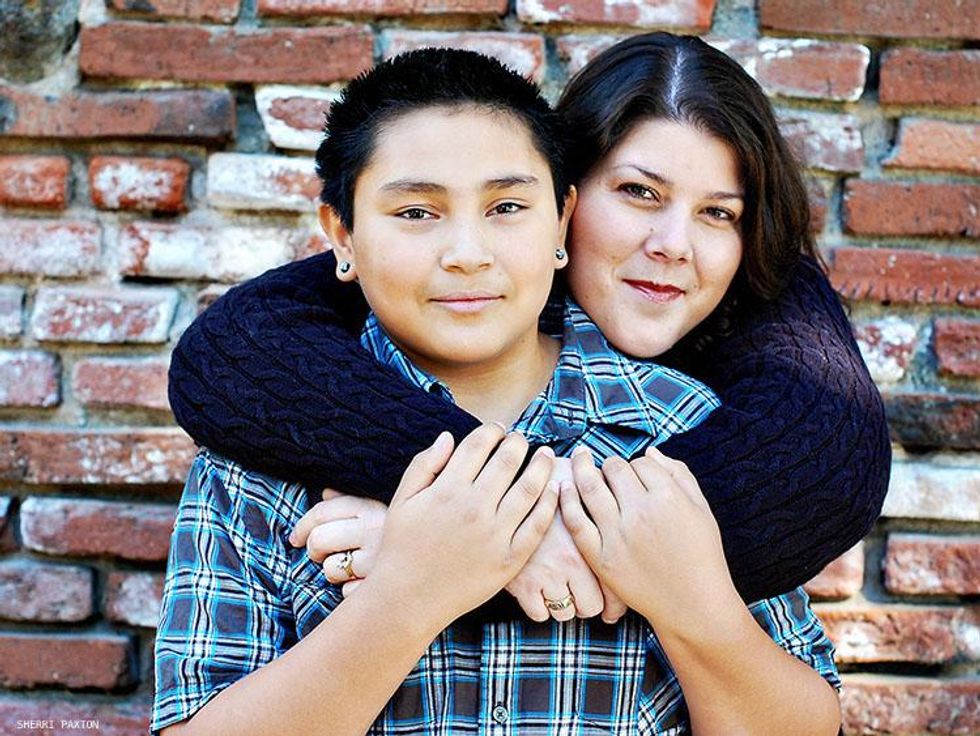
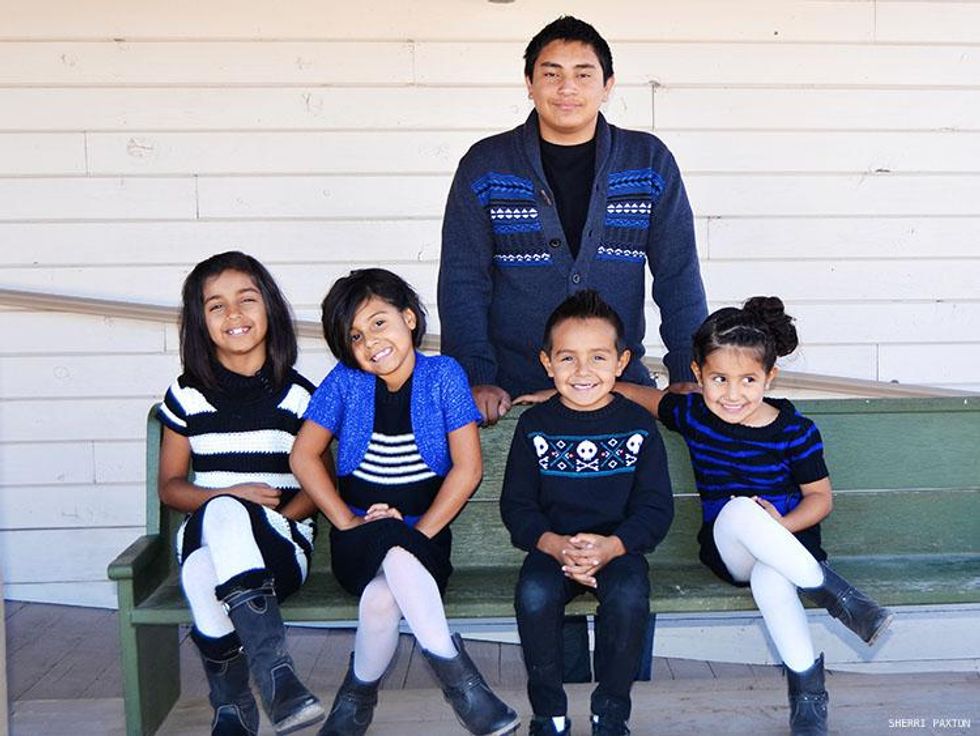
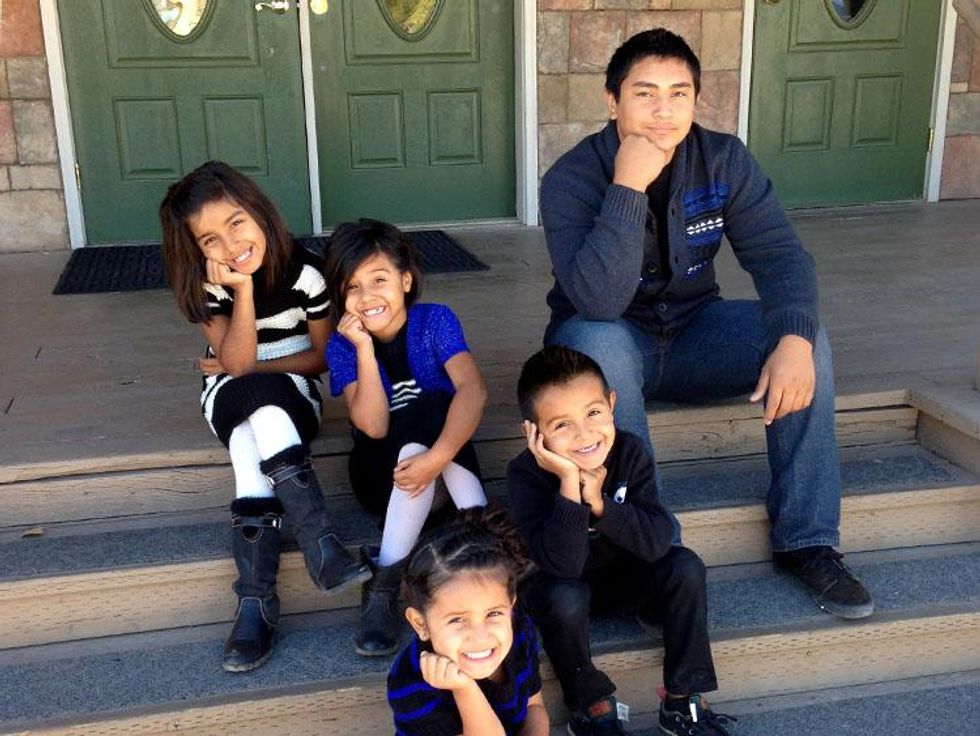
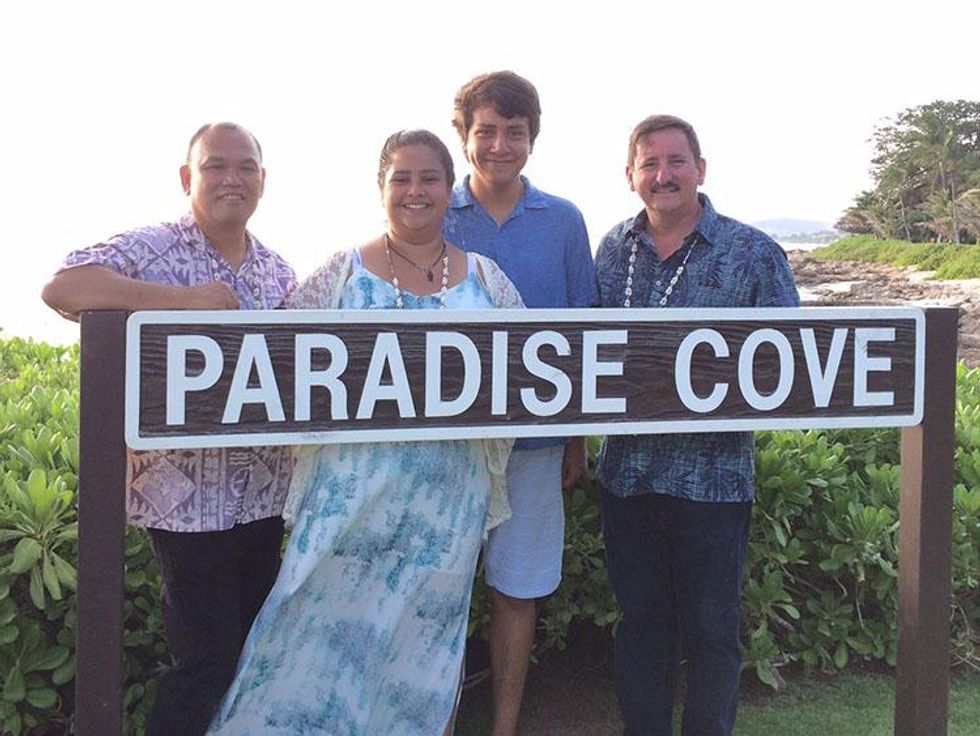

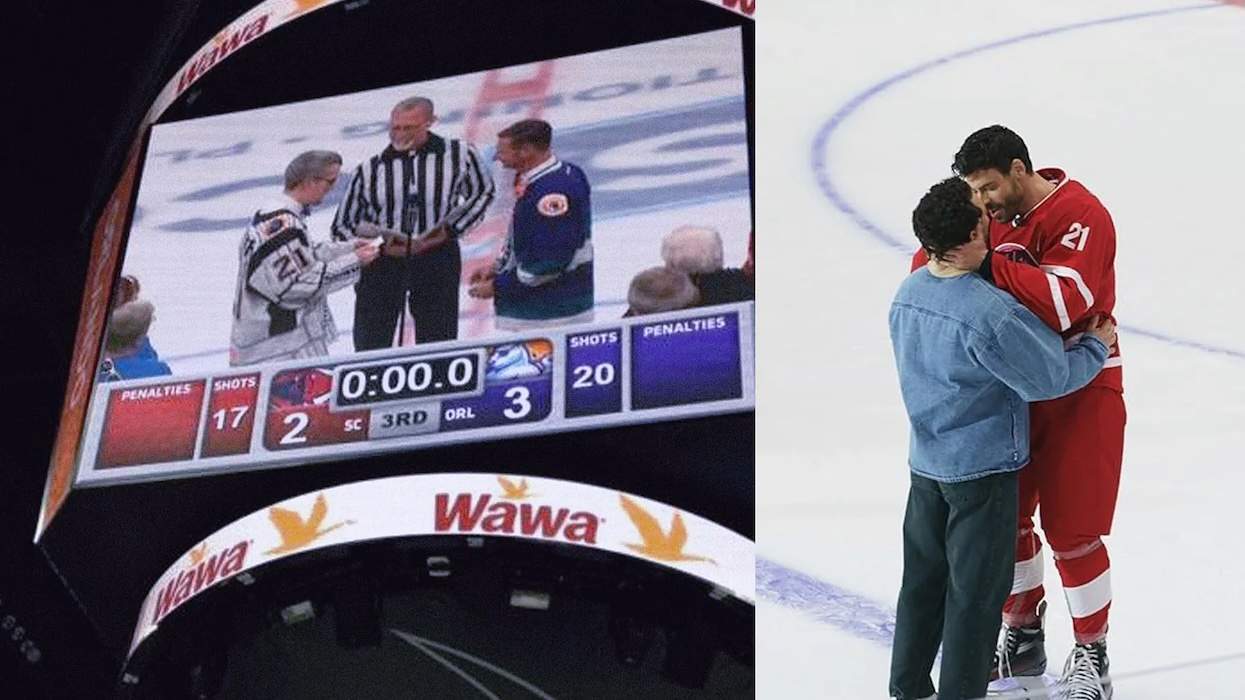



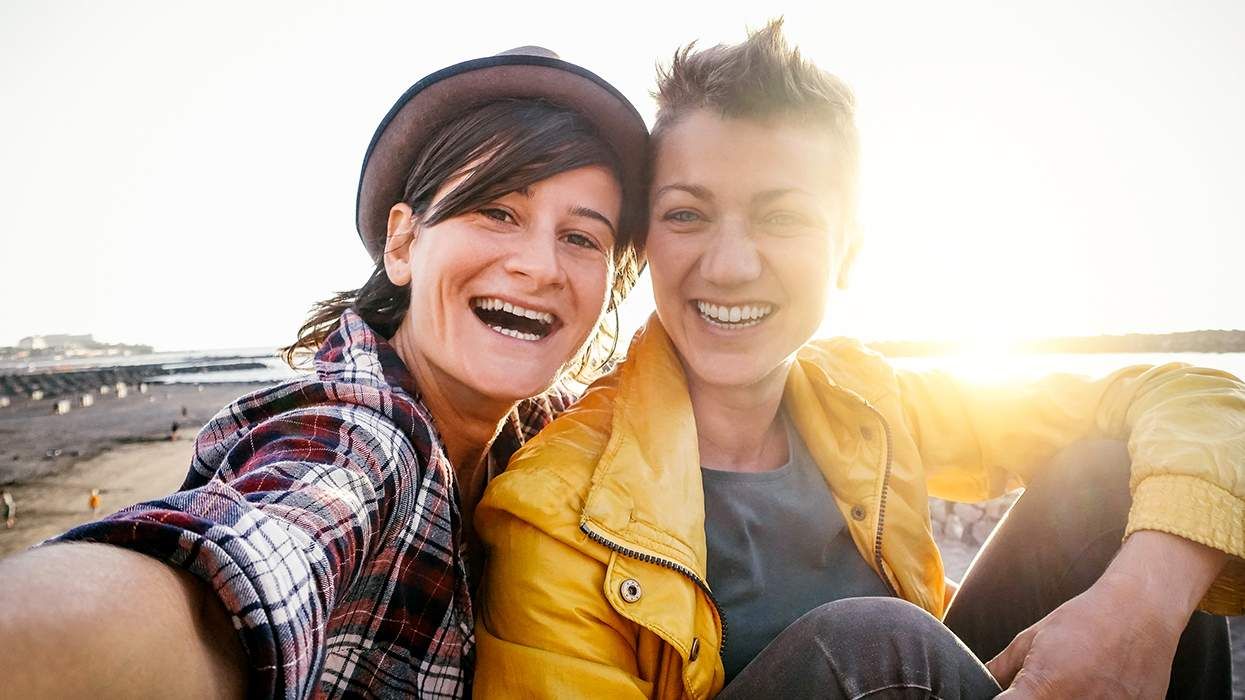






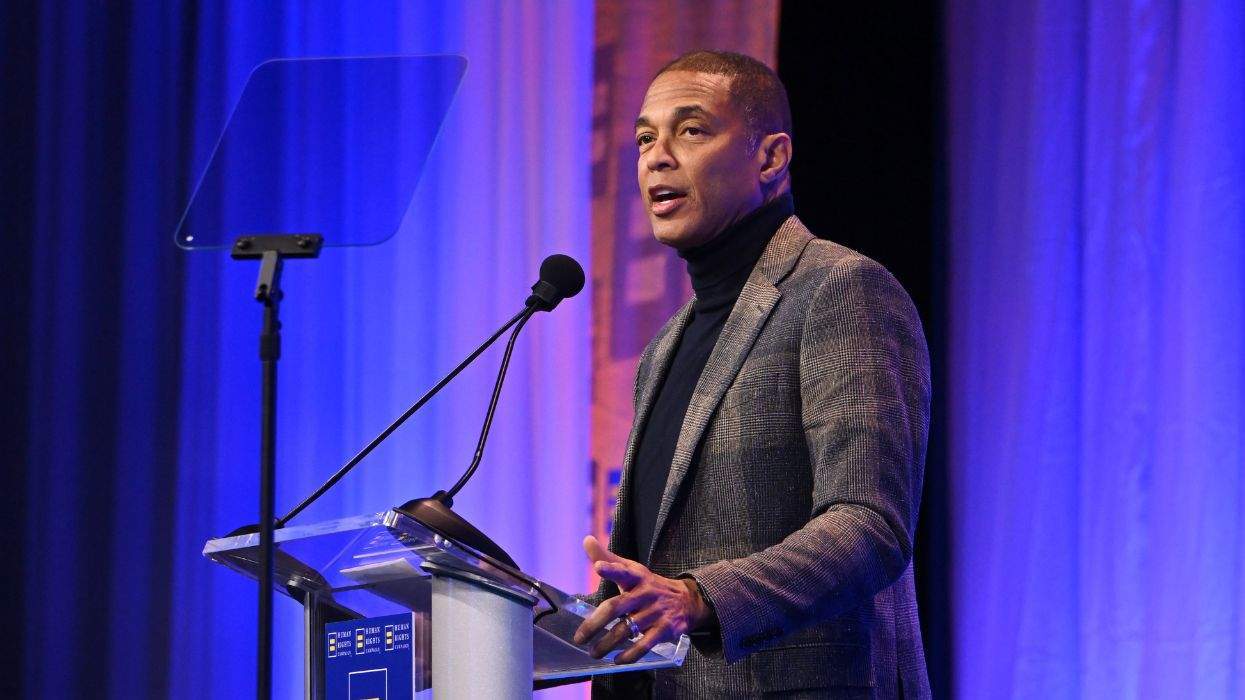
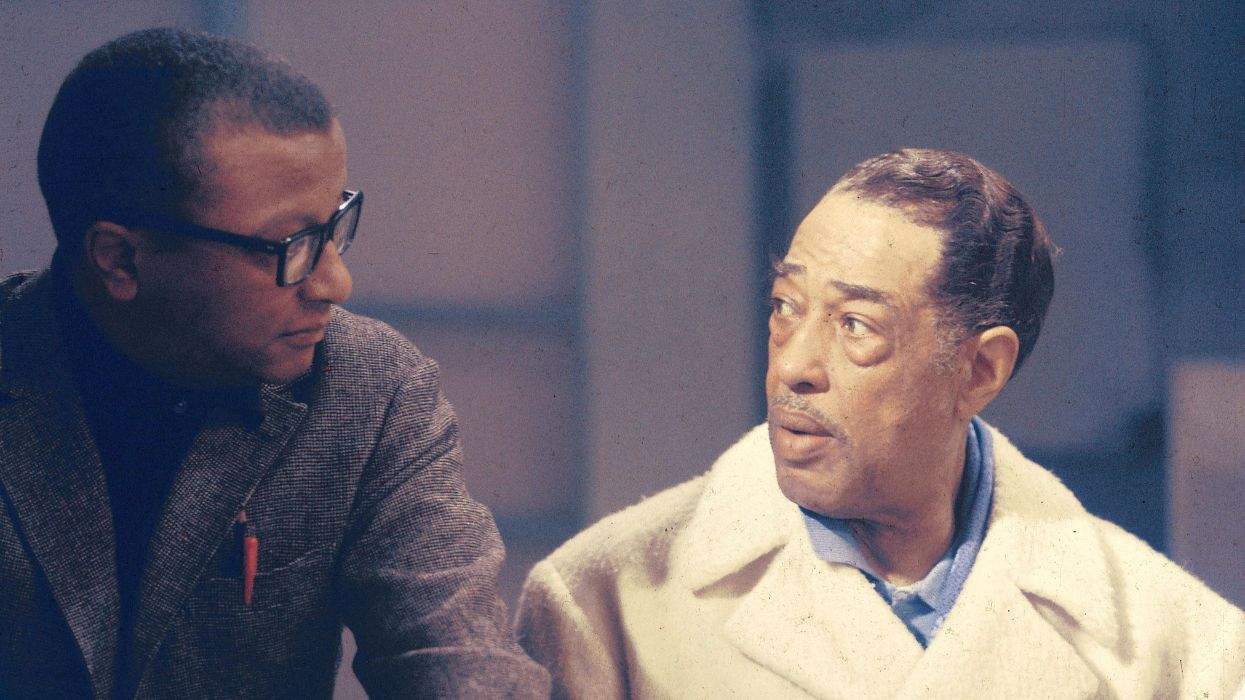
Charlie Kirk DID say stoning gay people was the 'perfect law' — and these other heinous quotes
These are some of his worst comments about LGBTQ+ people made by Charlie Kirk.